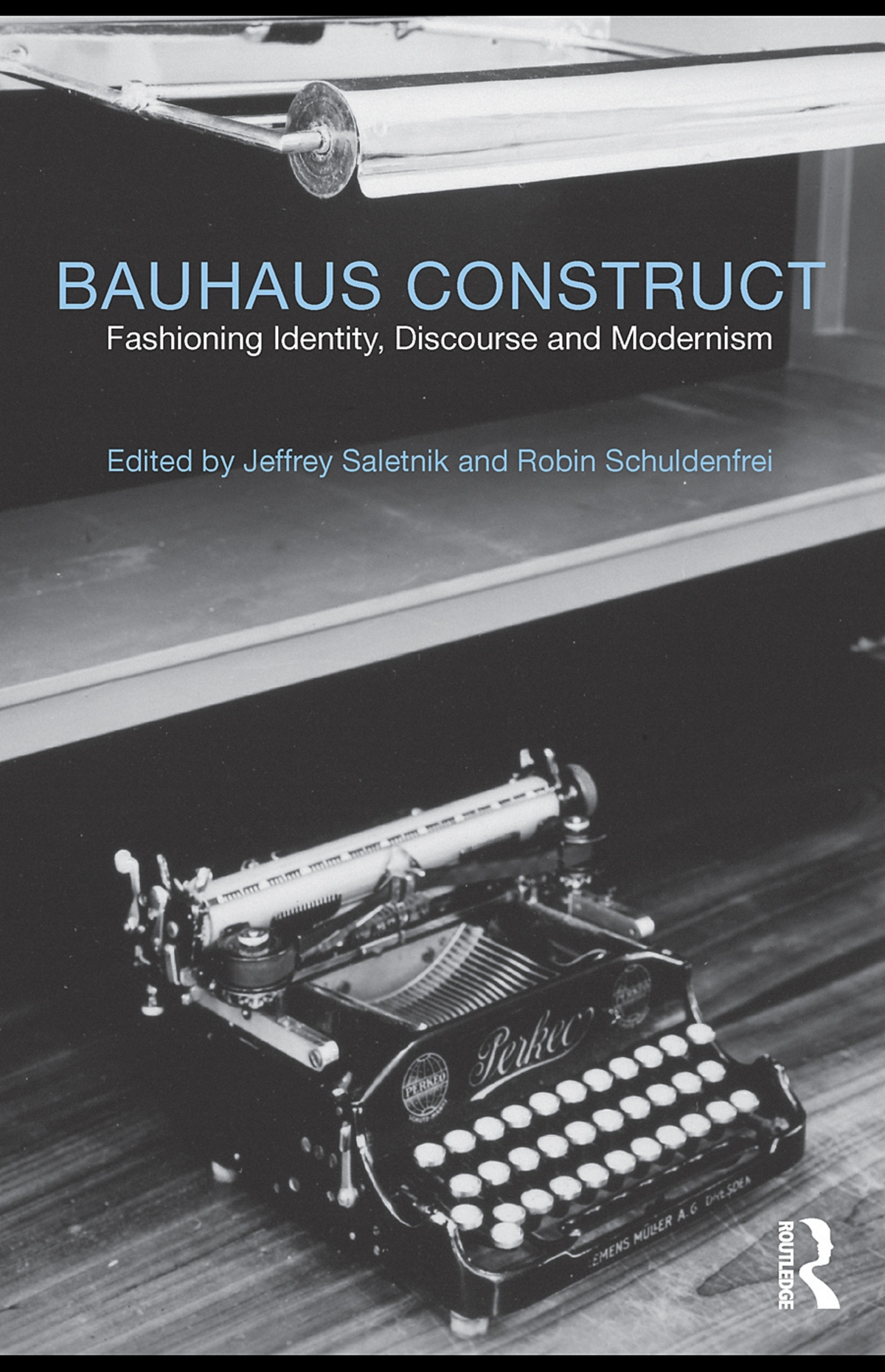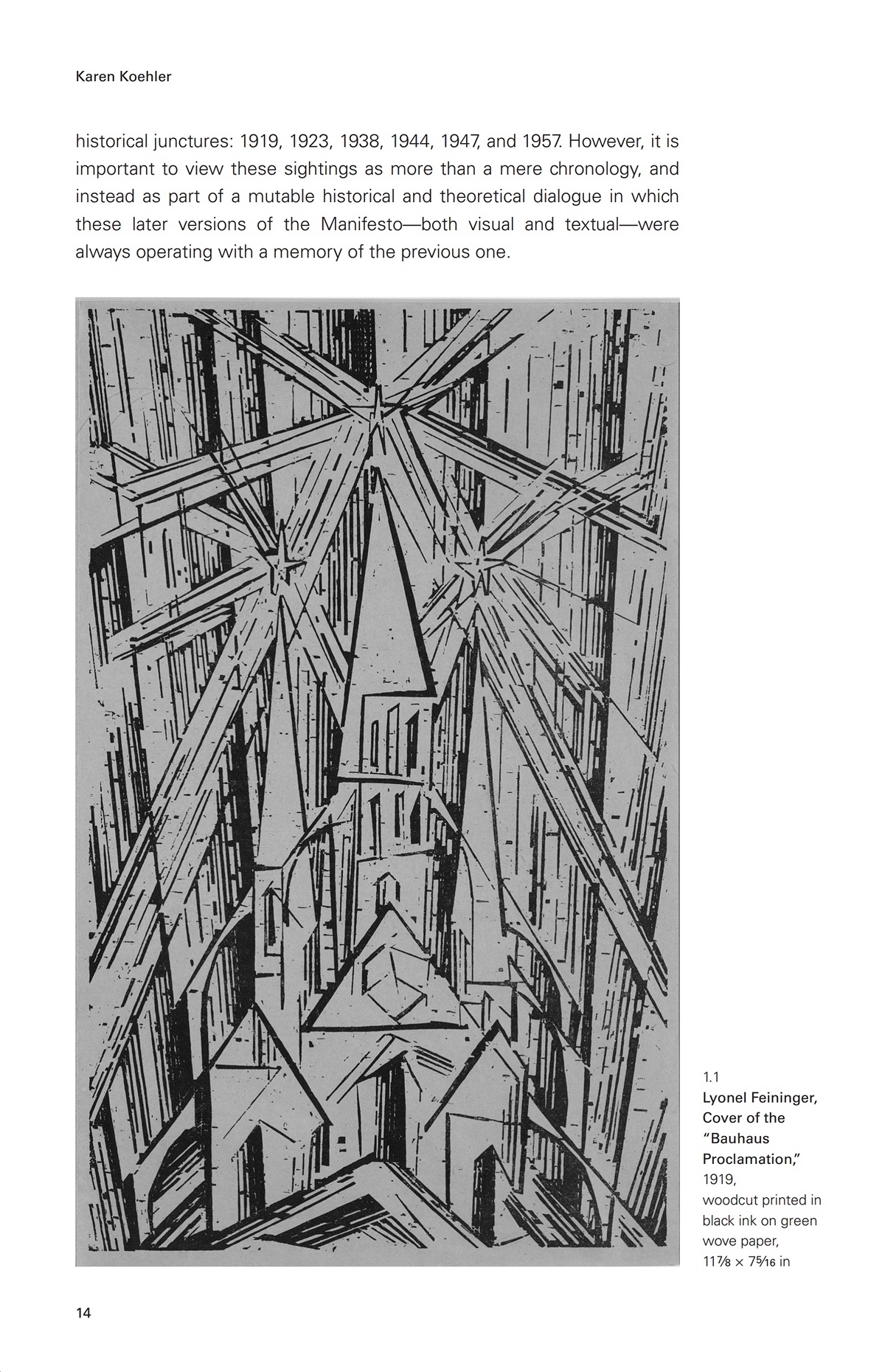|
|
Bauhaus Construct : Fashioning Identity, Discourse and Modernism. — London ; New York, 2010  Bauhaus Construct : Fashioning Identity, Discourse and Modernism / Edited by Jeffrey Saletnik and Robin Schuldenfrei. — First published 2009 by Routledge. — London ; New York : Routledge, 2010. — IX, 278 p., ill. — ISBN 0-203- 86867-6Bauhaus Construct
Reconsidering the status and meaning of Bauhaus objects in relation to the multiple re-tellings of the school's history, this volume positions art objects of the Bauhaus within the theoretical, artistic, historical, and cultural concerns in which they were produced and received. Collectively, its essays take into account the primacy of cultural objects in fashioning a critical history of the school.
Featuring contributions from leading scholars in the history of art, architecture, and design, this volume offers an entirely new treatment of the Bauhaus, introducing new archival research and innovative methodologies which reveal how histories of the school have been constructed. Its essays demonstrate how Bauhaus objects are central to the discourse on the school and its key figures, including Paul Klee, Walter Gropius, and Laszlo Moholy-Nagy, and address the implications this has had on our understanding of the Bauhaus and modernism more generally.
Issues such as art and design pedagogy, the practice of photography, copyright law, and critical theory are brought into focus in relation to understandings of the iconic design school. At its core, the volume takes into account the inherent pliability of the Bauhaus and its continued relevance. An important resource for anyone studying the Bauhaus, modern art and design.
Jeffrey Saletnik is Lecturer and Mellon Postdoctoral Fellow in the Department of Art History and Archeology at Columbia University. Recently he was a fellow of the Berlin Program for Advanced German and European Studies at the Freie Universitat Berlin.
Robin Schuldenfrei is Junior Professor of Art History at Humboldt University, Berlin and Assistant Professor of Art History at the University of Illinois—Chicago.
Contents
Notes on Contributors vii
Acknowledgments ix
Introduction 1
Jeffrey Saletnik and Robin Schuldenfrei
Part 1: Agents 11
1 The Bauhaus Manifesto Postwar to Postwar: From the Street to the Wall to the Radio to the Memoir 13
Karen Koehler
2 The Irreproducibility of the Bauhaus Object 37
Robin Schuldenfrei
3 The Disappearing Bauhaus: Architecture and its Public in the Early Federal Republic 61
Frederic J. Schwartz
4 Pedagogic Objects: Josef Albers, Greenbergian Modernism, and the Bauhaus in America 83
Jeffrey Saletnik
Part 2: Transference 103
5 A Refuge for Script: Paul Klee's "Square Pictures" 105
Annie Bourneuf
6 Lyonel Feininger's Bauhaus Photographs 125
Laura Muir
7 Excavating Surface: On the Repair and Revision of Laszlo Moholy-Nagy's Z VII (1926) 142
Joyce Tsai
8 Picturing Sculpture: Object, Image and Archive 163
Paul Paret
Part 3: Object Identity 181
9 Designing Men: New Visions of Masculinity in the Photomontages of Herbert Bayer, Marcel Breuer, and Laszlo Moholy-Nagy 183
Elizabeth Otto
10 The Bauhaus Object between Authorship and Anonymity 205
Magdalena Droste
11 The Identity of Design as Intellectual Property 226
T'ai Smith
Coda 245
Bauhaus Endgame: Ambiguity, Anxiety, and Discomfort 247
Alina Payne
Illustration Credits 267
Index 271
Acknowledgments
Many of the essays in this volume were first presented in March 2008 as part of "Bauhaus Palimpsest: the Object of Discourse," a symposium funded by the Harvard Art Museum's M. Victor Leventritt Fund. The editors co-organized this symposium with Peter Nisbet, Daimler-Benz Curator of the Busch-Reisinger Museum and Senior Lecturer in History of Art and Architecture at Harvard University. They would like to thank Thomas Lentz, Richard Benefield, Janet Sartor, and especially Peter Nisbet for their generous support at the onset of this project.
The editors also would like to express their gratitude for the encouragement and efforts of Barry Bergdoll, Sabine Hartmann, Charles W. Haxthausen, Andres Lepik, Toshiko Mori, and Alina Payne, as well as John Ackerman and Dawna Schuld, both of whom offered sensitive and insightful suggestions throughout the preparation of the manuscript. At Routledge, they thank Francesca Ford and Georgina Johnson-Cook for their guidance and expertise regarding the editing, production, and design of this volume. Finally, they thank the authors for their diligence and for their dedication to this project.
Скачать издание в формате pdf (яндексдиск; 71,3 МБ).
Все авторские права на данный материал сохраняются за правообладателем. Публикация электронной версии данной книги является рекламой бумажного издания и носит ознакомительный характер. Любое коммерческое использование запрещено. В случае возникновения вопросов в сфере авторских прав пишите по адресу 42@tehne.com.
17 июля 2015, 16:16
0 комментариев
|
Партнёры
|







Комментарии
Добавить комментарий